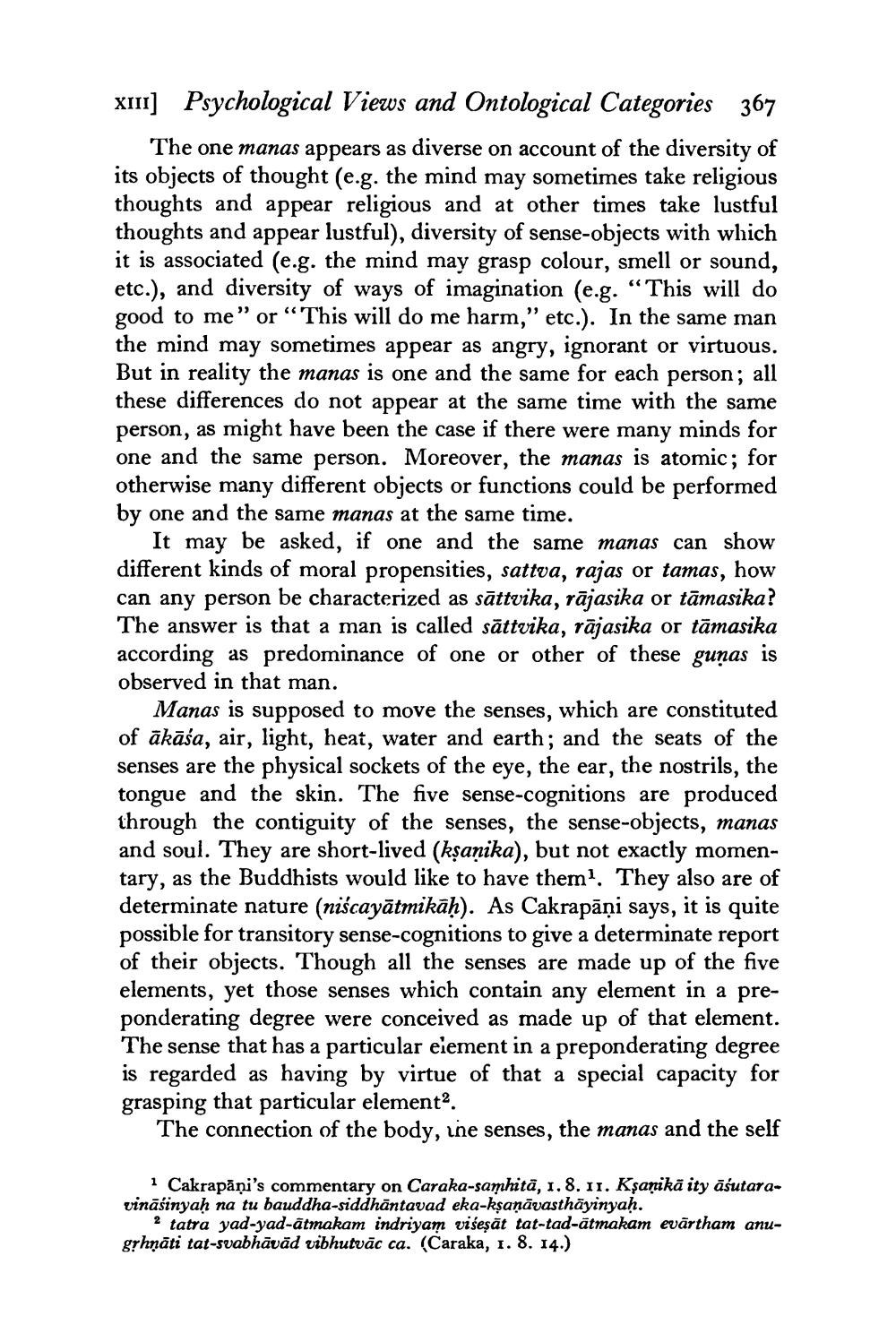________________
XI] Psychological Views and Ontological Categories 367
The one manas appears as diverse on account of the diversity of its objects of thought (e.g. the mind may sometimes take religious thoughts and appear religious and at other times take lustful thoughts and appear lustful), diversity of sense-objects with which it is associated (e.g. the mind may grasp colour, smell or sound, etc.), and diversity of ways of imagination (e.g. “This will do good to me" or "This will do me harm," etc.). In the same man the mind may sometimes appear as angry, ignorant or virtuous. But in reality the manas is one and the same for each person; all these differences do not appear at the same time with the same person, as might have been the case if there were many minds for one and the same person. Moreover, the manas is atomic; for otherwise many different objects or functions could be performed by one and the same manas at the same time.
It may be asked, if one and the same manas can show different kinds of moral propensities, sattva, rajas or tamas, how can any person be characterized as sāttvika, rājasika or tāmasika? The answer is that a man is called sättvika, rājasika or tāmasika according as predominance of one or other of these guņas is observed in that man.
Manas is supposed to move the senses, which are constituted of ākāša, air, light, heat, water and earth; and the seats of the senses are the physical sockets of the eye, the ear, the nostrils, the tongue and the skin. The five sense-cognitions are produced through the contiguity of the senses, the sense-objects, manas and soul. They are short-lived (kṣaṇika), but not exactly momentary, as the Buddhists would like to have them. They also are of determinate nature (niscayātmikāḥ). As Cakrapāņi says, it is quite possible for transitory sense-cognitions to give a determinate report of their objects. Though all the senses are made up of the five elements, yet those senses which contain any element in a preponderating degree were conceived as made up of that element. The sense that has a particular element in a preponderating degree is regarded as having by virtue of that a special capacity for grasping that particular elementa.
The connection of the body, ine senses, the manas and the self
mmentary on Candmeka-ksaņāvasthāyiny.am evārtham anu
1 Cakrapāņi's commentary on Caraka-samhitā, 1. 8. 11. Kșaņikā ity āśutaravināśinyaḥ na tu bauddha-siddhāntavad eka-ksaņāvasthāyinyah.
2 tatra yad-yad-ātmakam indriyam višeşāt tat-tad-ātmakam evārtham anugrhņāti tat-svabhāvād vibhutvāc ca. (Caraka, 1. 8. 14.)




